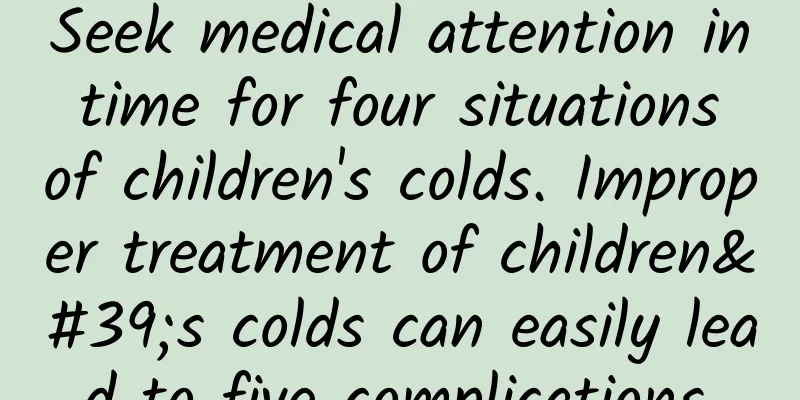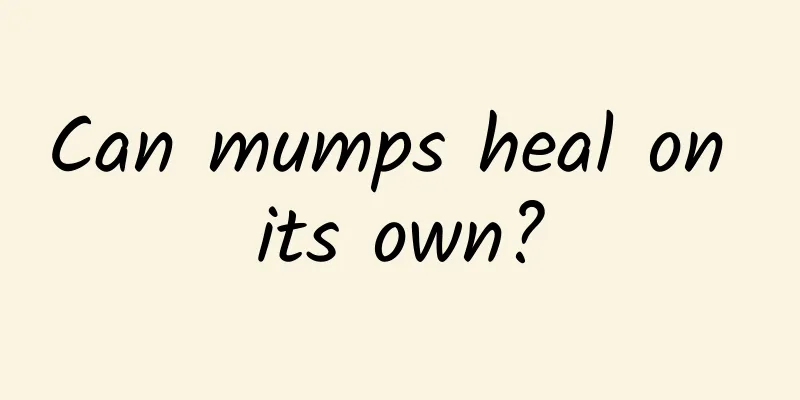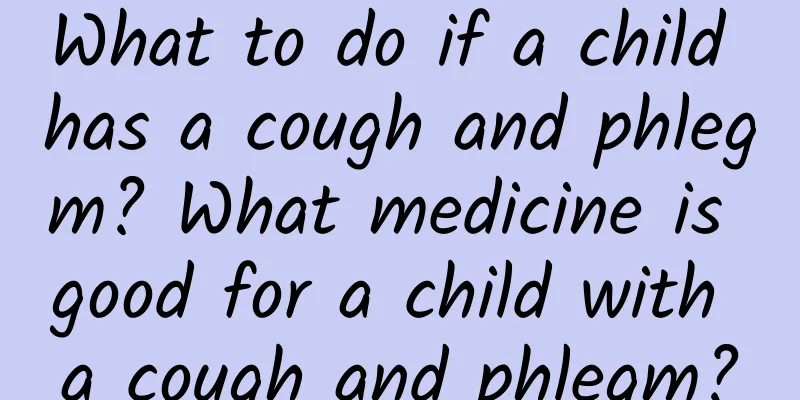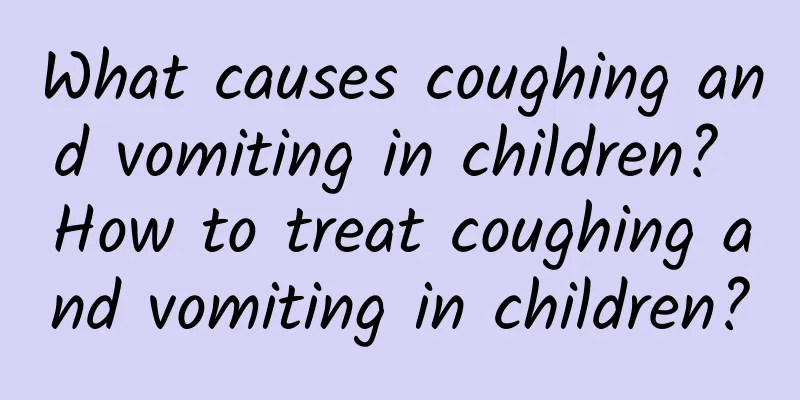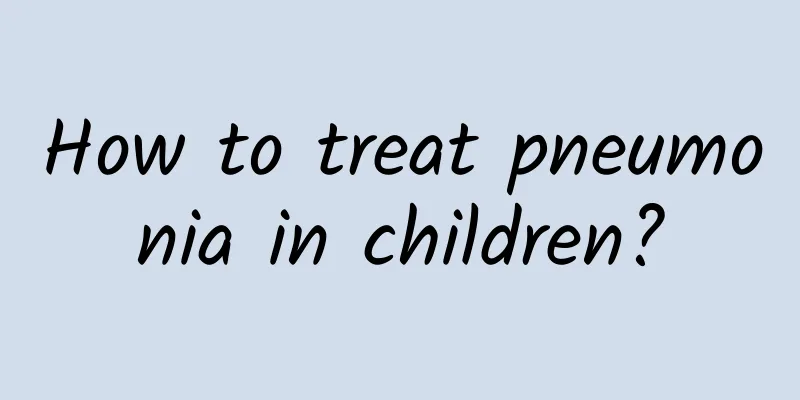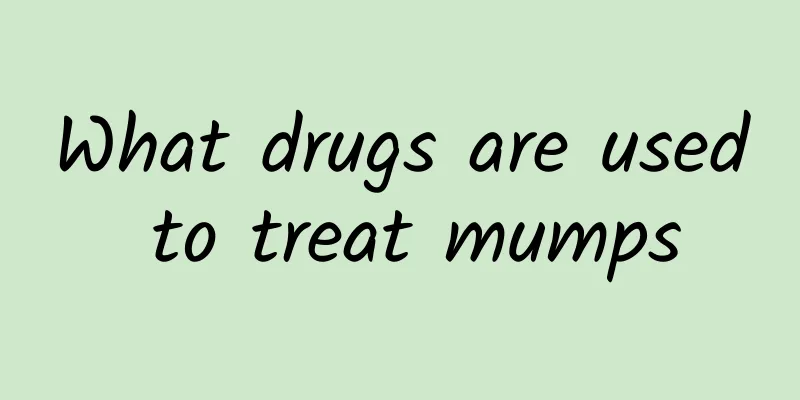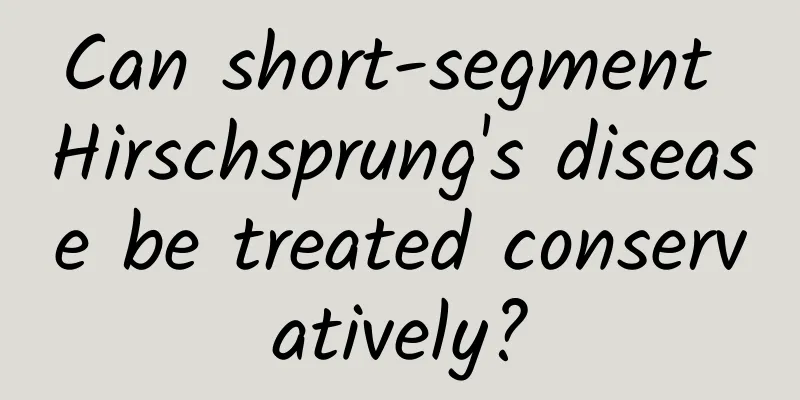Will pneumonia in children cause breathing difficulties? Several key points for the care of pneumonia in children
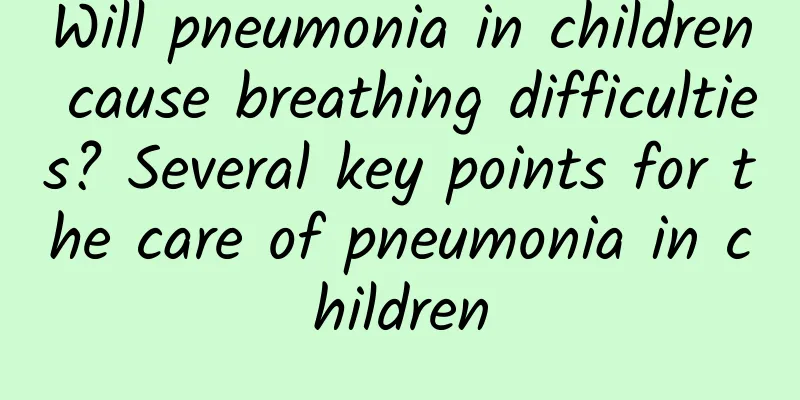
|
Pneumonia in children is a more serious respiratory infection, and it has a certain impact on children's health. So how serious is pneumonia in children? How dangerous is pneumonia in children? 1. Abnormal breathing rate The World Health Organization provides a simple criterion for diagnosing pneumonia: count the number of breaths per minute when the baby is in a relatively quiet state. Dangerous signs: If you find that infants under 2 months old breathe ≥ 60 times/minute, infants between 2 to 12 months old breathe ≥ 50 times/minute, and children between 1 to 5 years old breathe ≥ 40 times/minute, it means there is a possibility of pneumonia and you should go to the hospital for diagnosis and treatment immediately. Reason: In pneumonia, inflammation of the alveoli and interstitial lungs causes thickening of the respiratory membrane and obstruction of the lower respiratory tract, which can cause pulmonary ventilation and gas exchange dysfunction, leading to hypoxemia and decreased arterial oxygen saturation, and clinical symptoms such as shortness of breath, increased breathing and heart rate. Therefore, counting breaths is very helpful for early identification of pneumonia and judgment of the condition. 2. Dyspnea In addition to shortness of breath, there are other symptoms and signs that can help us diagnose early in children with pneumonia. The most important one is the "three concave" Dangerous symptoms: Depression between ribs, supraclavicular fossa, and suprasternal fossa occurs when inhaling, and may also be accompanied by symptoms such as flaring of the nose and cyanosis of the lips. Reason: This phenomenon of the baby indicates severe hypoxia, which has mobilized all the respiratory muscles to breathe hard, and is a manifestation of severe pneumonia. What are the key points in nursing for children with pneumonia? 1. Maintain a quiet and clean environment to ensure that the sick child has enough rest. At work, we often see that there are always many elders and relatives around the sick children. On the one hand, the noise caused by many people is not conducive to the rest of the sick children. At the same time, the carbon dioxide exhaled by many people accumulates inside, and the polluted air is not conducive to the recovery of pneumonia. Therefore, there should not be too many people in the room, and the visitors should not stay too long. The room should be ventilated regularly to ensure air circulation, but drafts should be avoided, which is conducive to the recovery of pneumonia. 2. Pay attention to proper nutrition and drink enough water. Children with pneumonia often have high fever, poor appetite, and are unwilling to eat, so the diet should be light and easy to digest, and at the same time ensure a certain amount of high-quality protein. For those with fever, give them a liquid diet (such as human milk, cow's milk, rice soup, egg drop soup, beef soup, vegetable soup, fruit juice, etc.), and add semi-liquid food (such as porridge, noodles, cakes, etc.) after the fever subsides. Because children with pneumonia have more breathing times and fever, the evaporation of water is more than usual, so it is necessary to add an appropriate amount of sugar and salt water. 3. Strengthen skin and oral care. Especially for patients who sweat a lot, they should change wet clothes in time and wipe the sweat with a hot towel, which is good for the skin to dissipate heat and resist germs. Children with a lot of sputum should try to cough up the sputum to prevent the poor discharge of sputum and affect the recovery of pneumonia. If the condition allows, parents should often pick up the child and pat the back gently. Children who are bedridden should turn over frequently, which can prevent lung congestion and make it easier to cough up sputum, which is helpful for recovery. 4. Keep the airway open. When children have pneumonia, the gas exchange in the alveoli is restricted, and there is varying degrees of hypoxia in the body. If the nasal cavity is blocked or there is a lot of sputum in the trachea and bronchi, it will affect the inhalation of air and aggravate hypoxia. Therefore, parents should promptly clear the nasal secretions and suction the sputum for the children to keep the airway open, and prevent sticky sputum from blocking and milk or medicine from choking and causing suffocation. The room should maintain a certain humidity to avoid dry air, which is conducive to coughing up sputum. 5. Take medicine and get injections on time to avoid affecting the efficacy. Because children have poor disease resistance, especially infants, their illness is prone to recurrence. When parents find that their children are breathing rapidly, having difficulty breathing, blue areas around their lips, pale or cyanotic faces, it means that the children are suffering from hypoxia and their illness is getting worse, and they must be rescued as soon as possible. |
Recommend
What medicine should I take for mumps
Mumps is a common salivary gland disease, usually...
What are the early symptoms of neonatal jaundice and cerebral palsy
Neonatal cerebral palsy due to jaundice refers to...
How much does it cost to check for acute laryngitis in children?
At present, the incidence of acute laryngitis in ...
What to do with baby's night terrors? What are the solutions for baby's night terrors?
When babies have night terrors, parents need to c...
What causes high hemoglobin?
High hemoglobin levels usually mean that the body...
The degree and nature of dehydration in children with diarrhea
When children have diarrhea and become dehydrated...
What are the symptoms of neonatal jaundice? Is yellowing of the whites of the baby’s eyes jaundice?
Neonatal jaundice is a very common disease. Child...
What kind of exercise should I do if I have ADHD?
Exercise is very important for everyone, because ...
How to identify symptoms of pneumonia in infants
Usually, the presence of infant pneumonia can be ...
Can polio be cured?
Polio is a relatively serious disease that troubl...
How to treat a child with a cough and phlegm How to treat a child with a cough and phlegm
Coughing and sputum in children are common sympto...
What to eat for children with lung heat
Children with lung heat can eat pears, lilies, su...
Is hand, foot and mouth disease serious in adults? Is it contagious?
HFMD in adults is generally not serious, but it i...
What are the traditional Chinese medicines for treating colds in children?
Traditional Chinese medicines for treating childr...
The four stages of pneumonia in children and their medication
Pediatric pneumonia can be divided into the conge...
